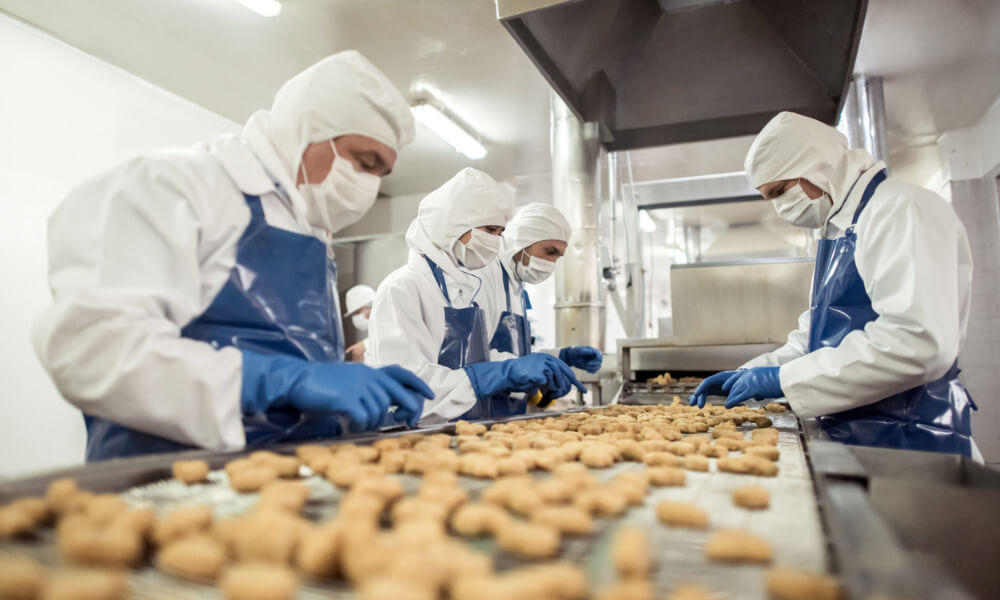What does the future hold for the food processing industry? As technology continues to reshape our world, how will it impact the jobs within this sector? The answer is in the merger of automation, AI, and sustainable practices. They are set to change food production.
Gone are the days of monotonous, labor-intensive tasks. We now see a rise in advanced robotics, machine learning, and data-driven decisions. These technological advancements are streamlining operations, increasing efficiency, and opening new opportunities for skilled workers.
Let’s delve in and learn more.
Trends Shaping the Future of Food Processing
The food processing industry is rapidly changing. Technology, shifting consumer preferences, and global trends are driving this change. As we look to the future, several key trends will shape the industry’s landscape and jobs.
Technological Advancements
- Automation and Robotics: Automation revolutionizes food processing, from harvesting to packaging. Robots can perform tasks precisely and quickly, reducing labor costs and improving efficiency.
- Artificial Intelligence and Machine Learning: AI and ML are analyzing huge data sets. They aim to optimize production, predict consumer demand, and ensure food safety.
- Internet of Things (IoT): IoT devices connect machines and supply chain partners. They enable real-time monitoring and control of food processing operations.
Consumer Demand
- Health and Wellness: Consumers are increasingly seeking out healthy, nutritious, and functional foods. This trend is driving demand for products with clean labels, organic ingredients, and added health benefits.
- Sustainability: It is a key concern for consumers. They want products that are ethically made and have a low environmental impact.
- Convenience: Busy lifestyles have fueled the demand for convenient food products, such as ready-to-eat meals and meal kits.
- Personalization: Consumers are seeking personalized food experiences tailored to their specific dietary needs and preferences.
These trends are reshaping the food processing industry, creating new job roles and opportunities for skilled professionals.
Opportunities for Job Seekers
The food processing industry offers a wide range of opportunities for job seekers. As technology advances and consumer preferences evolve, new and exciting roles are emerging.
To capitalize on these opportunities, job seekers should consider the following:
- Education and Training: Pursuing degrees or certifications in food science, technology, engineering, or business can enhance job prospects.
- Internships and Apprenticeships: Gaining practical experience through internships and apprenticeships can provide valuable insights into the industry.
- Leveraging Online Platforms: Online job boards and platforms can help you find and apply for food processing positions. Consider searching these platforms to find food processing positions with an employment agency to streamline your job search. This will increase your chances of landing a suitable role.
- Networking: Building relationships with industry professionals can open doors to potential job opportunities. Attending industry conferences and trade shows and joining professional organizations can help expand your network.
By combining education, experience, and networking, job seekers can position themselves for success in the dynamic food processing industry.
Emerging Job Roles and Skills
The food processing industry is evolving rapidly, creating new and exciting job opportunities. Some of the key roles in demand include:
- Food Scientists and Technologists: Developing new products, improving existing ones, and ensuring food safety and quality.
- Data Scientists and Analysts: Analyzing data to optimize production, predict consumer trends, and improve efficiency.
- Automation Engineers: Designing and implementing automated systems to streamline processes.
- Supply Chain Specialists: Managing the flow of raw materials and finished products.
- Quality Assurance Managers: Ensuring food safety and quality standards are met.
To succeed, individuals need a strong foundation in food science, tech, engineering, and data analytics. They must also have a passion for innovation and a commitment to quality.
Challenges and Considerations
While the future of food processing holds immense potential, there are several challenges that the industry must address:
- Automation and Job Displacement: There is a concern about job displacement with increasing automation. However, these technologies can create new jobs. They are in data analysis, machine learning, and automation engineering.
- Food Safety and Quality: Ensuring food safety and quality is paramount. Strict adherence to regulatory standards and robust quality control measures are essential to maintain consumer trust.
- Sustainability: The food processing industry must adopt sustainable practices to minimize environmental impact. This includes reducing waste, conserving water, and minimizing energy consumption.
- Consumer Trends: Keeping up with evolving consumer preferences, such as demand for organic, natural, and functional foods, is crucial.
By proactively addressing these challenges, the food processing industry can continue to thrive and offer promising career opportunities.
Conclusion
The food industry is changing rapidly. New technologies are making food production more efficient, and consumers are demanding healthier, more sustainable options. This creates exciting job opportunities for people with skills in food science, technology, and business.
To succeed in this industry, stay updated on trends. Gain experience and build strong networks. By embracing innovation and adapting to change, individuals can build fulfilling careers in the dynamic world of food processing.
